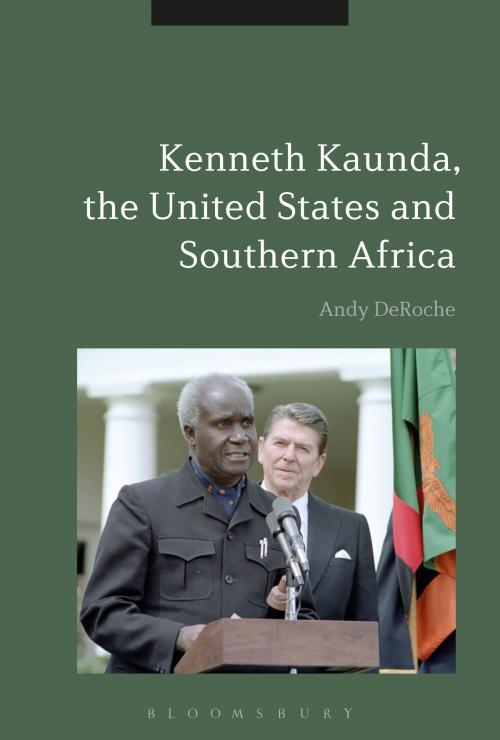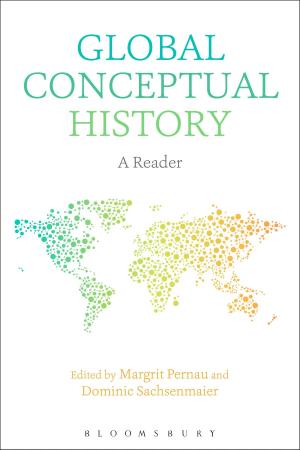Kenneth Kaunda, the United States and Southern Africa
Nonfiction, History, Africa, South Africa, Modern, 20th Century, Americas, United States| Author: | Andy DeRoche | ISBN: | 9781474267632 |
| Publisher: | Bloomsbury Publishing | Publication: | May 19, 2016 |
| Imprint: | Bloomsbury Academic | Language: | English |
| Author: | Andy DeRoche |
| ISBN: | 9781474267632 |
| Publisher: | Bloomsbury Publishing |
| Publication: | May 19, 2016 |
| Imprint: | Bloomsbury Academic |
| Language: | English |
Kenneth Kaunda, the United States and Southern Africa carefully examines US policy towards the southern African region between 1974, when Portugal granted independence to its colonies of Angola and Mozambique, and 1984, the last full year of the Reagan administration's Constructive Engagement approach. It focuses on the role of Zambian president Kenneth Kaunda, the key facilitator of international diplomacy towards the dangerous neighborhood surrounding his nation. The main themes include the influence of race, national security, economics, and African agency on international relations during the height of the Cold War.
Andy DeRoche focuses on key issues such as the civil war in Angola, the fight against apartheid, the struggle for Namibia's independence, the transition from Rhodesia to Zimbabwe, and bilateral US/ Zambian relations. The approach is traditional diplomatic history based on archival research in Zambia and the USA as well as interviews with key players such as Kaunda, Mark Chona, Siteke Mwale, Vernon Mwaanga, Chester Crocker, and Frank Wisner. The result offers an important new insight into the nuances of US policy toward southern Africa during the hottest days of the Cold War.
Kenneth Kaunda, the United States and Southern Africa carefully examines US policy towards the southern African region between 1974, when Portugal granted independence to its colonies of Angola and Mozambique, and 1984, the last full year of the Reagan administration's Constructive Engagement approach. It focuses on the role of Zambian president Kenneth Kaunda, the key facilitator of international diplomacy towards the dangerous neighborhood surrounding his nation. The main themes include the influence of race, national security, economics, and African agency on international relations during the height of the Cold War.
Andy DeRoche focuses on key issues such as the civil war in Angola, the fight against apartheid, the struggle for Namibia's independence, the transition from Rhodesia to Zimbabwe, and bilateral US/ Zambian relations. The approach is traditional diplomatic history based on archival research in Zambia and the USA as well as interviews with key players such as Kaunda, Mark Chona, Siteke Mwale, Vernon Mwaanga, Chester Crocker, and Frank Wisner. The result offers an important new insight into the nuances of US policy toward southern Africa during the hottest days of the Cold War.















